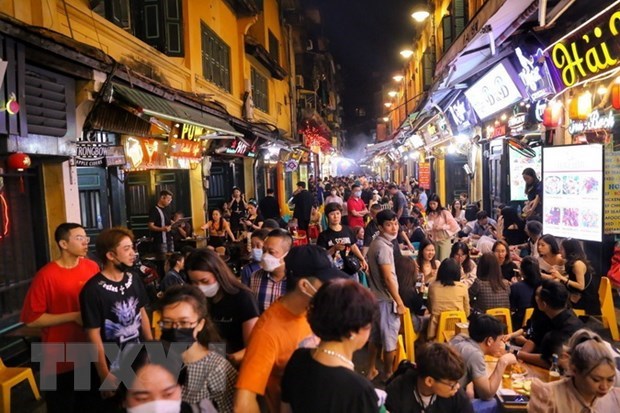 |
| Illustrative image. |
The night-time economy is increasingly being recognised as a driver of economic growth globally, said Do Thang Hai, deputy minister of Industry and Trade.
In Vietnam, the night-time economy has tremendous potential to play a role in creating new jobs, improving incomes of locals and promoting domestic consumption and tourism, Hai said at a meeting held in HCM City recently.
In 2020, the Prime Minister approved a night-time economy development project with the aim of exploiting the potential of the night-time economy to promote overall economic growth and improve incomes for residents, he said.
Municipal and provincial authorities need to conduct research to formulate appropriate plans tailored to the specific socio-economic conditions, he added.
Nguyen Nguyen Phuong, deputy director of HCM City Department of Industry and Trade, said there is not much investment for developing the night-time economy in the city, leaving potential growth untapped.
Essential investment for developing the night-time economy includes public transport systems, infrastructure, pedestrian areas, and a wide range of services and products for nighttime activities, Phuong said.
The city’s socio-economic development master plan that integrates a plan of night-time economic development has not been issued, he said.
Regulations on the management of a night-time economy have not been put in place, he added.
Asso. Prof. Nguyen Quyet Thang from the University of Technology in HCM City said that the night-time economy makes a significant contribution to the overall economy and employment and encourages tourism globally.
The night-time economy contributed 70 billion GBP (83.6 billion USD) to the UK and 400 billion JPY (2.97 billion USD) to Japan in 2020, Thang said.
In Vietnam, night-time economy development remains modest in some major cities, he said.
It is crucial to raise the awareness of authorities and the public on the benefits of the night-time economy, which is commonly perceived as ‘sensitive’ economic activities, he said.
Fear of crime and challenges related to security and order and noise pollution have hindered the development of the night-time economy, he added./.

















































